Washington buzz: 1 year after legalization, D.C. weed is a garden-variety pleasure
Initiative 71 legalized smoking, growing cannabis at home in U.S. capital
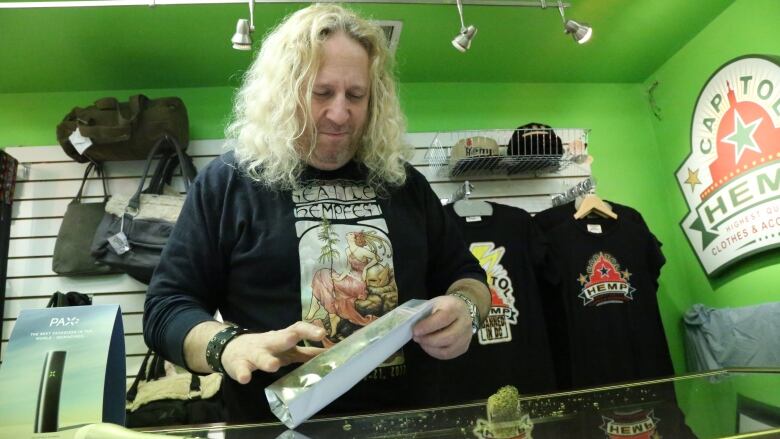
In at least one way, it has been a year of highs in Washington.
The American capital marks its first anniversary today as a legal pot district, the biggest jurisdiction to legalize cannabis possession in the eastern U.S. since the voter-approved Initiative 71 went into effect on Feb. 26, 2015.
Since then, weed aficionados, casual tokers and pro-cannabis activists have turned backroom possession, cultivation and the use of marijuana into a less furtive if not fully open lifestyle.
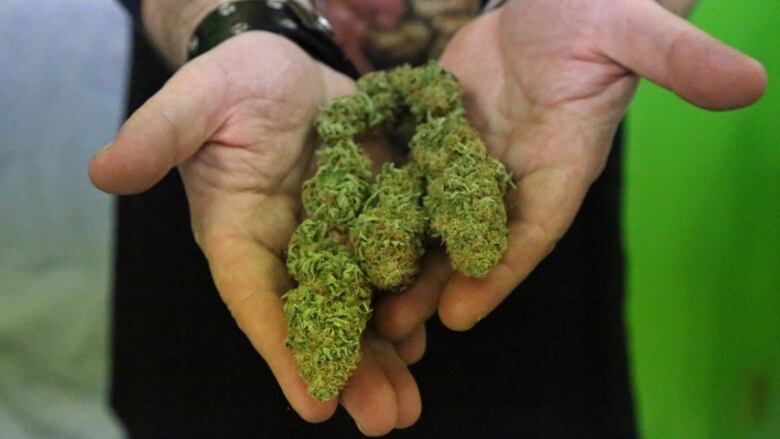
"Right now, we have a personal freedom initiative. It gives us the freedom to grow our own, possess our own, and give our own [to others]. That's huge," said Alan Amsterdam, unsealing an airtight pack of cannabis in his Washington head shop, then extracting a handful of aromatic buds for a homegrown strain he calls "Green Love Potion."
Around this time last year, Amsterdam ("that's my real name," he says) might not have dared carry even this single ounce (roughly 28 grams) of weed in his bag.
"Now we're in a situation where I can bring cannabis into my store," the 48-year-old said as Pearl Jam played over tinny speakers.
'Donations' for pot-laced treats
"We are the most progressive cannabis city on the East Coast at this moment in time. It's incredible, [given] the fact that we are a federal city, where we have very little rights because Congress is kind of our big brother, so to speak. But we were able to do it here."
You can walk out of your front door with two ounces of marijuana, without fear of arrests or ticketing, as long as you're an adult over 21- Adam Eidinger, Washington marijuana activist
While smoking must still be confined to homes and non-federal properties, some possession is legal, as is maintaining a grow room with three mature plants out of six at at time.
"That means you can walk out of your front door with two ounces of marijuana, without fear of arrests or ticketing, as long as you're an adult over 21," says Adam Eidinger, the activist who spearheaded Initiative 71. "You can cultivate in your home. You can give away up to one ounce to anyone over 21. So sharing is legal."
Selling, however, is not. But there are workarounds.
A local tobacco shop is hosting a free cannabis "seed exchange" and giveway tomorrow, according to Sumit Agarwal, organizer of the Capitol Canna Show. And near downtown's Dupont Circle this week, a small group gathered in front of a Mercedes swathed in marijuana-bud decals, waiting for the Kush Gods mobile delivery service to open.
The operation offers cannabis-infused snacks to customers in exchange for cash "donations." By remaining donor-based and offering free products to cancer and epilepsy patients, Kush Gods believes it skirts the ban on selling.
"We specialize in edibles. All types of gummies, cookies and brownies," business owner Nicholas "Kush God" Cunningham said, parking his car outside a downtown coffee shop as patrons lined up nearby. "We do operate like a food truck. The only difference is we don't actually cook food" in the car.
'You want edibles?'
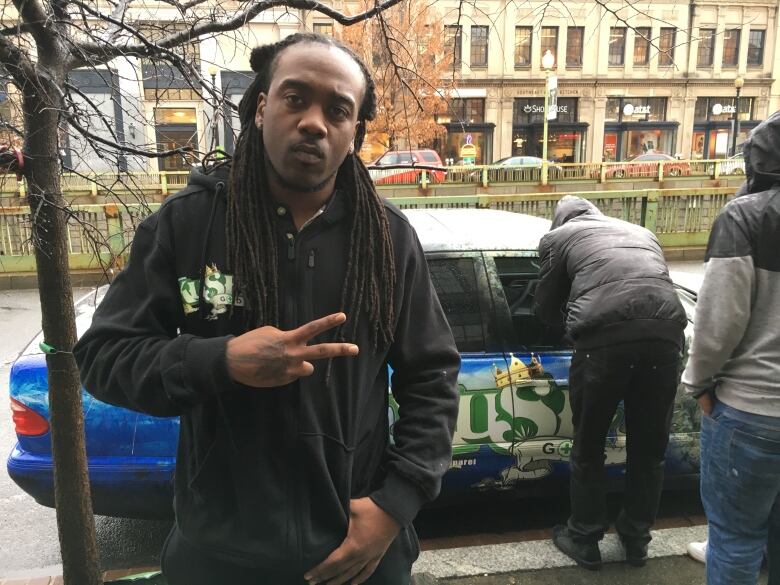
Even in a torrential downpour this week, 11 customers in the span of 30 minutes ducked their heads into the passenger-side window of the Kush Gods car to show their D.C. government-issued ID, then write orders on a clipboard.
For a $10 donation, a customer can buy a brownie. The same price will get a customer 10 medicated gummy bears.
"You want edibles, flowers, or both?" one customer called to his waiting girlfriend.
Consumption of edibles outside the home is legal. And while people who toke up in public can still be arrested, arrest rates for possession have plummeted.
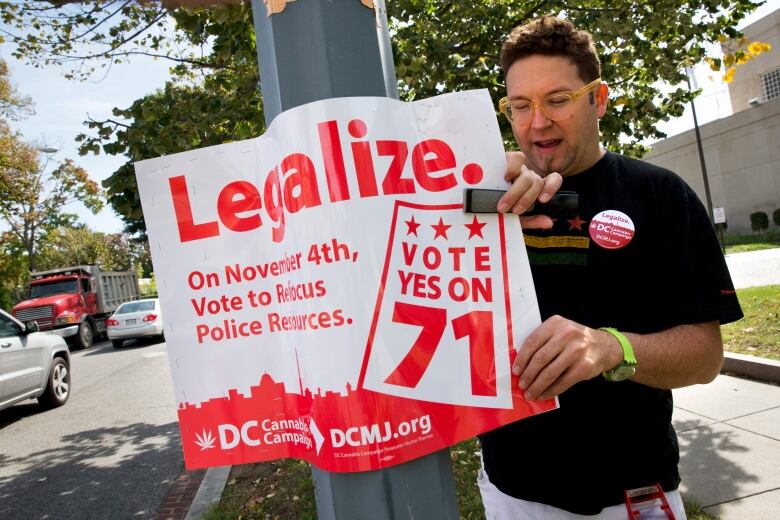
Before the passage of Initiative 71, Washington's Metropolitan Police Department made 895 arrests in 2014. In the year since its passage in November 2014, only seven arrests were made.
"It's been fantastic," says D.C. lawyer and legalization advocate Paul Zukerberg. "The relationship between the community and the police, I think, has improved because police don't have to make these arrests anymore, and citizens don't have to be afraid because they have a joint in their pocket."
Police Chief Cathy Lanier also embraced the change, noting that officers were hardly keen to bust people for simple possession anyway.
The arrests often disproportionately affected blacks, even though there was little racial disparity between blacks and whites when it came to marijuana use, a 2013 study by the American Civil Liberties Union found.
Psychological effect on Congress
For Eidinger, winning decriminalization in the seat of government where federal power brokers might commute daily past head shops or dispensaries holds a symbolic meaning.
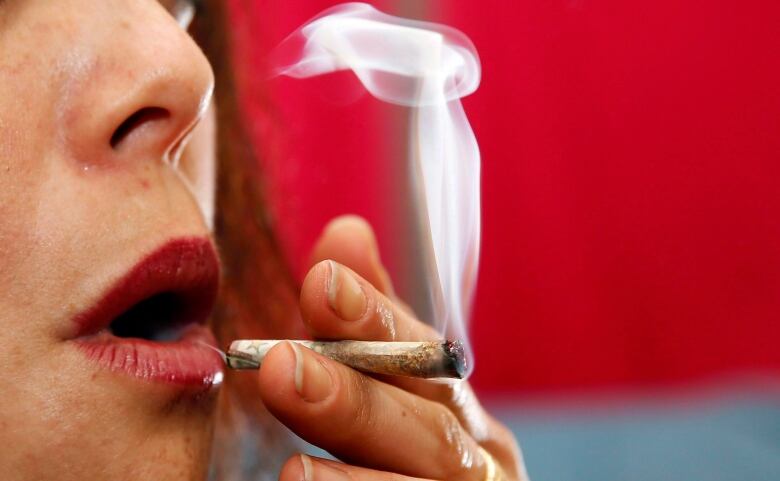
The push for legalization, he hopes, "might psychologically affect Congress."
The use, possession and sale of marijuana is still illegal in the U.S., under federal law, though the Obama administration has said it would not intervene if states decide to decriminalize and regulate cannabis for recreational or medicinal use, which a number have notably Alaska, Colorado, Oregon and Washington State to varying degrees.
Last weekend, at the four-star Mayflower Hotel, Eidinger gave a keynote address at the Capitol Canna Show for roughly 1,000 paid guests, some of whom discussed the possibility of opening up cannabis social clubs in the same vein as cigar bars.
- Legalized marijuana: What Colorado looks like 1 year after Amendment 64
- MAP | Marijuana use around the world
"It could be BYOC. Bring your own cannabis," Eidinger said. "There's a lot of people in town who really want to do this, who want to open up small cannabis gathering places that are designed, with proper ventilation, for users."
At the Capitol Hemp head shop, which Amsterdam opened with Eidinger years ago, the discussion turned to where the current regulations remain somewhat muddy.
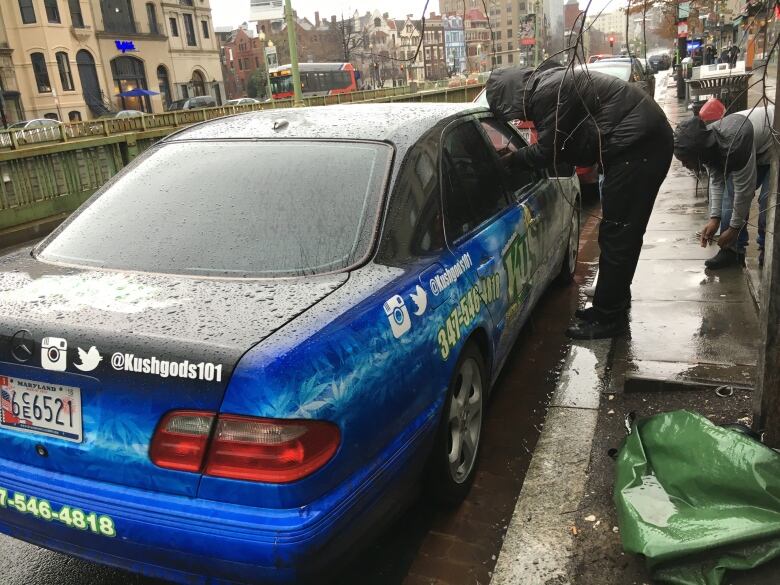
The ban on use and possession on federal property effectively carves Washington into "green and red zones," Amsterdam said, noting that 29 per cent of the city comprises federal land.
The distinction also means people living in public housing federally owned properties would come under the same restrictions.
As for growing at home, that all depends on whether the tenant has permission from the property owner to harvest. That can be tricky, too.
"If a landlord tells you that you can't, there's a little grey area," he said. "I built a custom grow room for myself. But it would be in the interest of the person growing to secure a landlord permission."
In Amsterdam's case, at least, he has little to worry about in that regard. Eidinger is his landlord, he said.
Corrections
- An earlier version of this story reported that an upcoming seed exchange will be hosted by the DC Cannabis Campaign. In fact, the seed exchange will be hosted by a local tobacco shop.Feb 26, 2016 6:40 PM ET












_(720p).jpg)


 OFFICIAL HD MUSIC VIDEO.jpg)
.jpg)



























































































